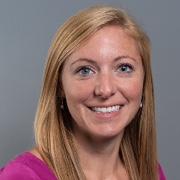Typical psychosocial therapies that are used for addiction include cognitive behavioral therapy (CBT), motivational interviewing (MI), and contingency management (CM). These may be augmented by other types of therapy, including pharmacological therapy and holistic therapies.
- During appointments, the therapist creates a supportive and non-judgmental environment in which the patient can speak openly about their thoughts, emotions, experiences, and difficulties.
- Contingency management, particularly voucher-based reinforcement therapy (VBRT), is the most well-evidenced effective treatment for cocaine and stimulant addictions. It may be supplemented with CBT and medication.
- As people often start using benzodiazepines to manage anxiety, they may benefit from psychotherapy and antidepressants for anxiety disorders, training in mindfulness and relaxation, and non-addictive anti-anxiety medications such as beta blockers and antihistamines.
.jpg?v=1722503307)
What is therapy?
Therapy simply means the treatment of a health problem, either with the aim of curing it or minimizing symptoms and improving quality of life.
In common parlance, therapy usually refers to psychotherapy, also called talking therapy. In psychotherapy, a professional uses verbal conversation and personal interaction to help the patient overcome mental illness and emotional difficulties, change their thinking and behavior, and increase their happiness.[1]
During appointments, the therapist creates a supportive and non-judgmental environment in which the patient can speak openly about their thoughts, emotions, experiences, and difficulties. While the patient may experience some relief simply from talking about their problems, the therapist may use various tools to help the patient uncover the roots of their problems, identify and challenge unhelpful patterns of thought, develop healthy coping mechanisms and uproot unhelpful ones, understand and improve their relationships, boost their self-esteem, and many other things. Psychotherapy is a collaborative treatment, with the therapist and patient working side by side.
There are other types of therapy besides psychotherapy, including:
- Physical therapy: treatment of injuries, disabilities, and other health conditions through directed exercise, hands-on treatment (massage, manipulation), and patient education.[2]
- Occupational therapy: helps people overcome difficulties with everyday life caused by disability, injury, aging, or physical or mental illness; equips them to live as independently as possible.
- Medical nutrition therapy: evidence-based, personalized dietary guidance from a registered dietitian to manage health conditions such as diabetes, heart disease, kidney disease, digestive conditions, and obesity.[3]
- Holistic therapy: also called body-centered psychotherapy, holistic therapy is an approach that considers the body, mind, and soul and integrates traditional psychotherapy with non-traditional approaches such as meditation, breath therapy, and hypnotherapy.
- Pharmacological therapy: treatment of a disease or illness with medication.
How is therapy used in addiction treatment?
We now understand that addiction is a neuropsychological disorder, with brain changes caused by repeated exposure to a drug and manifesting as compulsive use of that substance. That means psychotherapy has a role to play in its treatment, helping to uproot these compulsive behaviors and keep the patient free of drugs for long enough for the brain to heal itself.
Additionally, psychotherapy can help treat mental health disorders and deal with the traumatic experiences that often contribute to addiction. Without addressing these underlying causes, individuals are more likely to return to substance use, especially when confronted with stressors.
Psychotherapy can also help individuals rebuild their lives following addiction: to repair damaged relationships, develop healthy habits, reenter work or education, and restore self-esteem.
Therapy for alcohol addiction
Talking and behavioral therapies that may be used for alcohol addiction include:
- Motivational interviewing
- Cognitive behavioral therapy
- Group therapy
- Reinforcement-based treatments such as contingency management
- Classical conditioning therapies such as cue-exposure therapy (CET), in which the person is exposed to alcohol-related stimuli without the reinforcement of alcohol consumption in an attempt to decrease cravings and increase resilience against urges and triggering situations.[4]
These therapies are usually part of a full-spectrum treatment plan that includes medical detox, holistic therapies such as art therapy, nutritional counseling, medications such as naltrexone and disulfiram, mutual support groups such as Alcoholics Anonymous (AA), and psychotherapy for any underlying mental health conditions.
Therapy for cocaine and stimulant addictions
Contingency management, particularly voucher-based reinforcement therapy (VBRT), is the most well-evidenced effective treatment for cocaine and stimulant addictions. It may be supplemented with CBT and medication.[5][6] CBT itself may be particularly useful for relapse prevention in patients with cocaine use disorder.[6]
These therapies are often delivered as part of a complete treatment program, often administered inpatient. The treatment plan may also include group therapy, holistic therapies such as acupuncture, mutual support groups such as Narcotics or Cocaine Anonymous, and psychotherapy for any underlying mental health conditions.
Therapy for opioid addiction
Psychosocial therapies with demonstrated benefits for opioid use disorder include:
- Contingency management
- General supportive counseling
- Cognitive behavioral therapy
- Motivational interviewing[7]
A comprehensive treatment plan may also include medical detox, medication-assisted treatment such as methadone or buprenorphine, group therapy, mutual support groups, holistic therapies, and psychotherapy for any underlying mental health conditions.
Therapy for benzodiazepine addiction
Psychosocial interventions that may be used for benzodiazepine addiction include:
- Cognitive behavioral therapy
- Motivational interviewing
Therapies will be administered alongside a monitored tapering of the drug, to prevent the hazardous withdrawal effects associated with benzodiazepines.[8]
As people often start using benzodiazepines to manage anxiety, they may benefit from psychotherapy and antidepressants for anxiety disorders, training in mindfulness and relaxation, and non-addictive anti-anxiety medications such as beta blockers and antihistamines.
Therapy for marijuana addiction
Behavioral treatments that may be used for marijuana addiction include:
- Cognitive behavioral therapy
- Contingency management
- Motivational interviewing[9]
These may be complimented by mutual support groups, holistic therapies, and psychotherapy of any underlying mental health conditions.
Therapy for behavioral addictions
Behavioral addictions include gambling, overeating, video games, shopping, and risky sex. They affect the brain much like substance addictions do and are treated in similar ways, including with psychosocial therapies such as:
- Cognitive behavioral therapy
- Motivational interviewing
These may be accompanied by self-help interventions, mutual support groups such as Gambler’s Anonymous (GA) and Overeaters Anonymous (OA), and opioid receptor antagonists such as naltrexone.[10]
Therapy after treatment ends
Many people continue psychotherapy for months or years after they have stopped using.
Continuing therapy can:
- Reduce the risk of relapse.
- Help the individual develop healthier coping mechanisms so life’s stressors that push them to return to substance abuse.
- Treat ongoing mental health conditions that may have contributed to their substance abuse.
- Help the individual as they repair relationships, change their social life, and rebuild their career.
Visit our types of therapy page to learn more about how therapy is used to treat addiction in different ways.
Related blog: 100 inspiring recovery quotes


-guide-detail.jpg?v=1722503025)

